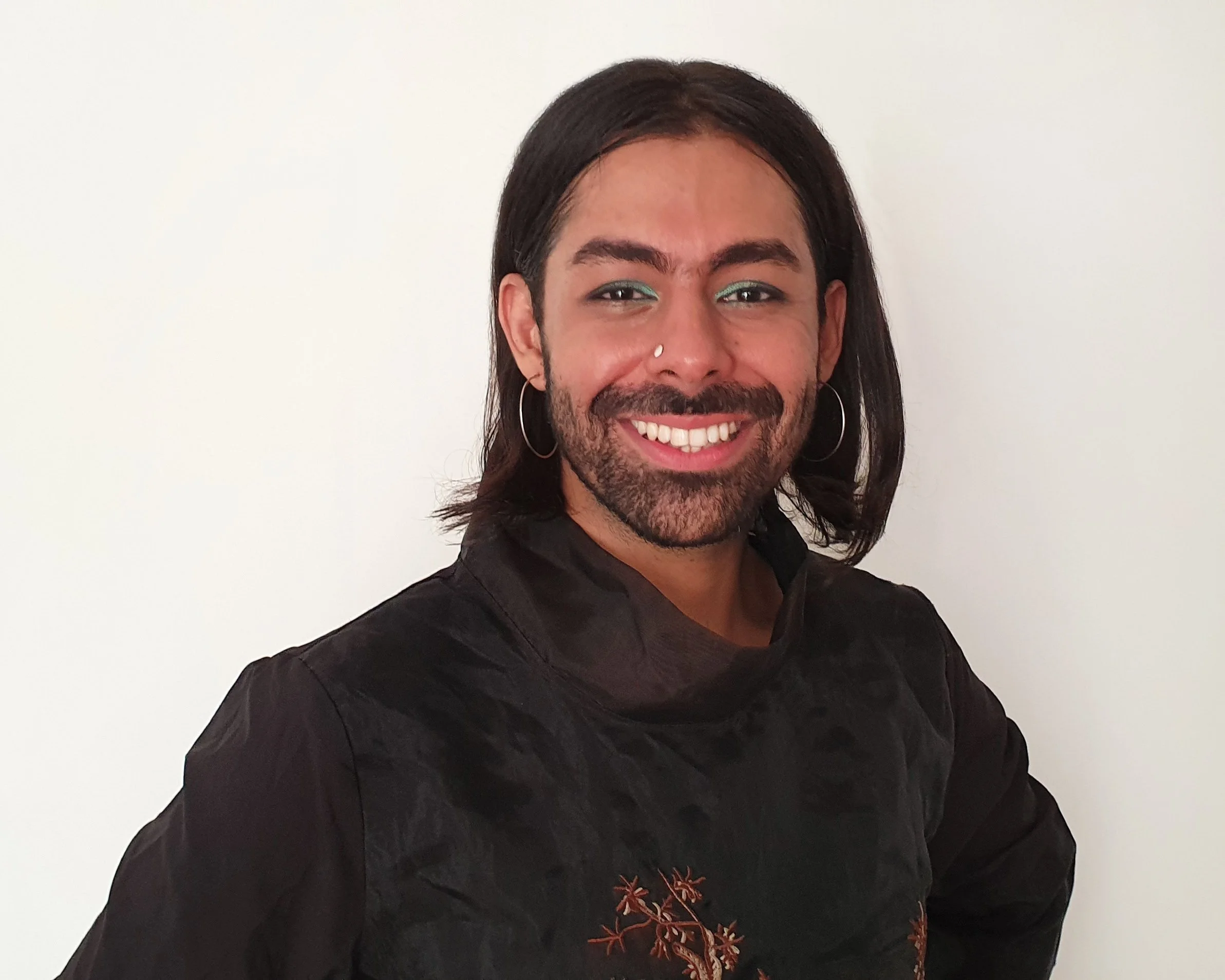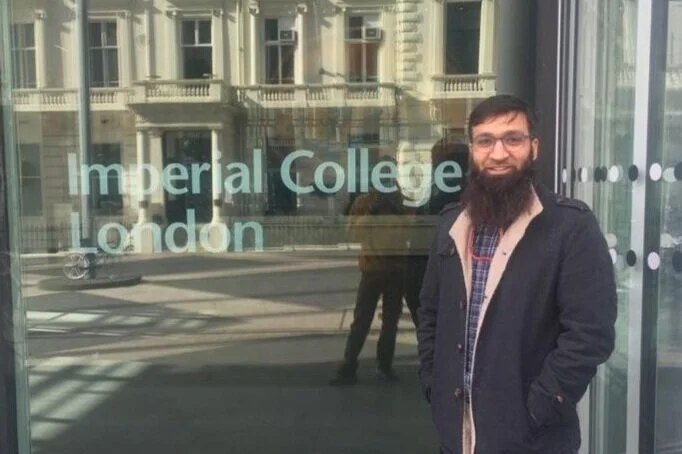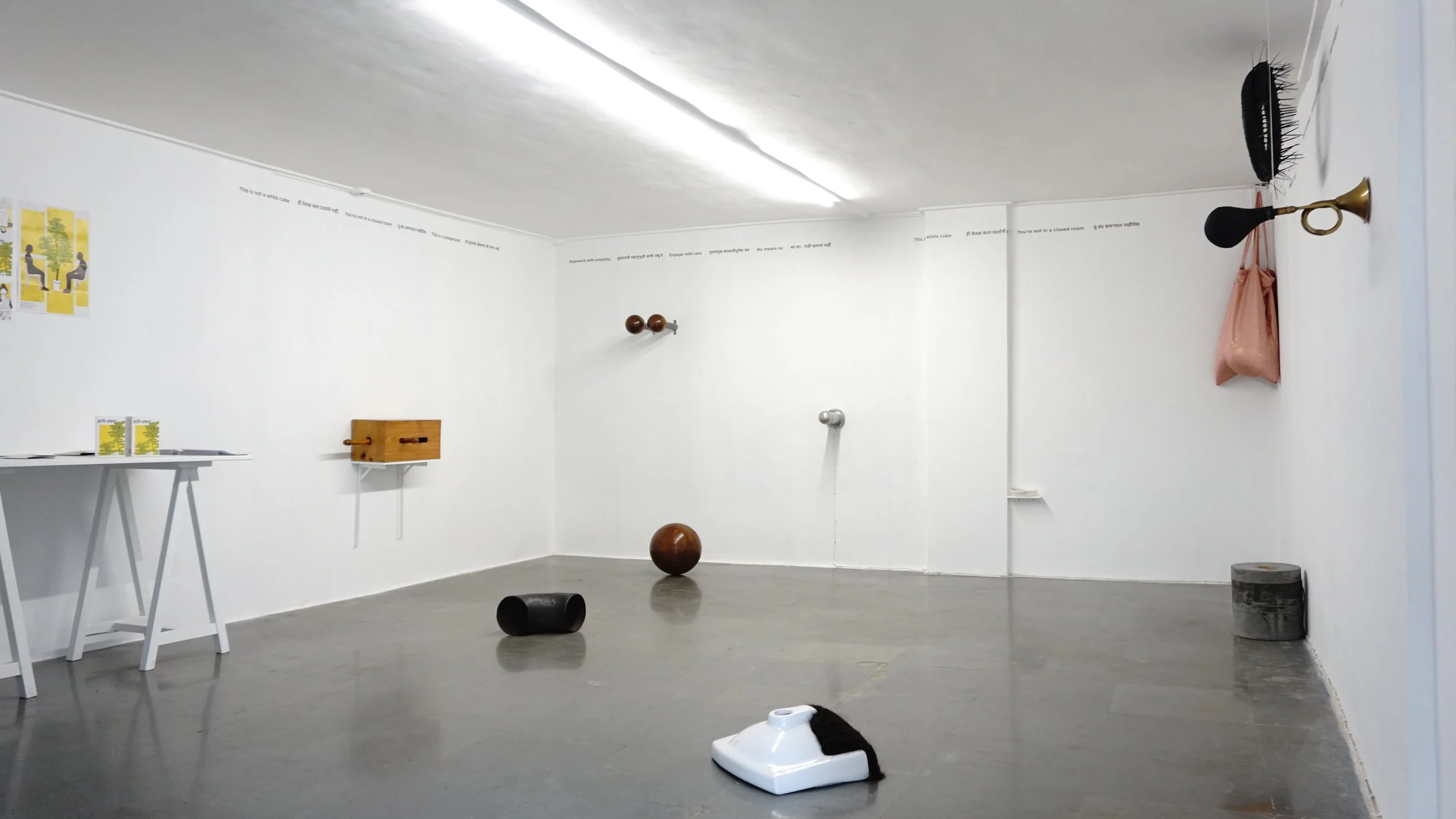International Studio and Curatorial Program (ISCP) 2021: Shaunak Mahbubani
Shaunak Mahbubani is the 2021 recipient of the International Studio and Curatorial Program (ISCP).
Shaunak is a nomadic curator and writer. They primarily pursue projects under the exhibition series 'Allies for the Uncertain Futures’ which is focused on exploring the possibilities of socio-political, ecological and techno-evolutionary futures through the lens of non-duality. Shaunak is interested in complicating boundaries between artwork and the viewer through participatory gatherings, diffusions, and the use of non-white cube spaces.
I BELIEVE IN TRANS* POWER
"Transphobia and colourism does not come from Africa! It comes from Europe, it comes from white people!" emphasised activist Joela Riviera, at the kick off to the Black Trans Liberation March on 27 July 2021 in New York City. Joela was reminding us that an important part of decolonization is the unlearning of those constructs that aim to separate us from each other, allowing white supremacy to wield power over black people and people of colour all over the world. The gender binary is amongst the most dangerous of these colonial constructs, assigning binary labels of gender - either male or female - to each child as they are born, thereby assimilating us into a system of violence that pervades every aspect of our lives. Undoing this embedded system of violence, and the transphobia that comes along with it, requires multi-pronged modes of action, across social, medical, legal, artistic, and other registers. To gain a better understanding of these modes of action, through the work of trans* & intersex artists and activists, was my motivation while in residency at the International Studio and Curatorial Program (ISCP), with the kind support of the Inlaks India Foundation.
Part of the Demonstration by STARR at NYC
One of the first public demonstrations to be held during my time in New York was that by S.T.A.R. (Street Transvestite Action Revolutionaries) for Trans* and Sex-workers' rights on May-Day. Cognizant of the risks of gathering, the demonstration was held in a large open air space at Pier 46, overlooking the Hudson river. These piers have historically been a space where trans* femme folks practiced survival sex-work, and the area was also a favoured haunt of S.T.A.R. founders Marsha P. Johnson and Sylvia Rivera. This demonstration marking the beginning of summer and the end of a difficult winter of isolation, took on a different flavour to other protests, grounded in the emotions of community gathering and occupying public space once again. The atmosphere was festive, pumped up through music played by Jasmine Infiniti, founder of trans & non-binary collective New World Dysorder. Pizza and cake was being served, as the community flaunted dance moves or enjoyed relaxing in the grass-filled park. We met the current S.T.A.R. director Maria Ebony, who underlined the importance of fighting for the safety of street sex-workers, as well as towards accessible medical care and frequent STI testing.
Trans_ Family Archive, Organized by Eli Brown, at Flux Factory, Queens, June 2021
Later that month, artist-curator Vidisha-Fadescha and myself were invited for an inter-generational community lunch organized by artist Eli Brown and Joanna Rivera, with the support of art-space Flux Factory. The lunch hoped to create a space for trans* folks across generations to share stories in an informal setting. Joanna Rivera, a manager at SAGE, told us about the organisation's initiatives for elder care in cohort with the NYC government, including the Stonewall House that provided affordable housing for trans* and queer elders. At the same lunch, we also met NYC legend and community leader Renée Imperato, who regaled us with stories from the 'old days', remarking on how much work had been done to reach the small sliver of acceptance we might feel today, and the importance of an intersection approach in our struggles forward. As I was nurtured by the flow of stories, light breeze, and the wholesome food, I wondered how these systems of care for trans and queer elders could be set up in India, where even the basic of right of self-determination of gender is not afforded to us.
It filled me with hope to see some large arts institutions recognising the importance of amplifying black trans voices. MoMA PS1 had invited Qween Jean, founder of Black Trans Liberation, to create an exhibit during the summer. Qween Jean transformed a section of the Museum into a memorial for black trans* people that had been murdered in recent times, highlighting the immediate need for measures of safety for trans* folk, especially black trans* folks, as well as holding space for the lives, hopes, and dreams lost due to violence at the intersection of transphobia and racism. Qween Jean also created a powerful video work for the space interviewing community leaders such as Ms. Ceyenne Doroshow, Tahtianna Fermin, Gia Love, Devin Michael Lowe, Raquel Willis, B. Hawk Snipes, and Marquise Vilsón Balenciaga on their visions for liberation. The installation transformed the otherwise formal white cube of the museum into a gathering of the magnificence, sparkle, and opulence of black trans* power.
Trans_ Futures Archive, Curated by After Party Collective, ISCP NY, June 2021
In the last weeks of the residency, ISCP supported After Party Collective# (Vidisha-Fadescha & myself, Shaunak Mahbubani) in sharing an iteration of the Trans* Futures Archive. This iteration of the ongoing project showcased artworks by 43 gender-variant artists from the Global South, including from locations such as Indonesia, Philippines, Mexico, Brazil, and India. Bringing together illustrations, photography, poetry, zines and videos from young and experienced artists, the archive looks to expound on the multiplicity of the trans* experience, without being boxed into the definitions and labels of cis curators and interpreters. The sharing continued After Party Collective's interest in affirmative spaces for trans* folks, building an atmosphere where visitors were welcome to sit and spend time with the various works. I'm very grateful to ISCP staff Alison Kuo and Ian Swanson for their support with the sharing.
After Party Collective# with return to New York City to curating "DANCE TRANS* REVOLUTION" an exhibition reflecting on the resilient power of trans* community gathering featuring eight artists and organizers with heritages from the Global South. The curators and the artists all have a common interest in exploring the space of collectivity as a site for political utterance and trans* agency. From the curatorial essay, "For centuries, colonial and religious empires have criminalized gender-variance and imposed the binary as a method of control. Shunned from public life by threats of violence, the modern history of transness can be seen as a history of clandestine communities. Trans* people have long known the importance of creating safety amongst ourselves: finding kinship in living rooms, makeshift ball rooms, anonymous chat servers, jatras, parks, piers, and buffet flats. The most joyous are those modes of gathering organized by trans* people for trans* people, which offer not only safety but also affirmation, and are celebrated within this exhibition." DANCE TRANS* REVOLUTION opens on Nov 6 2021 at apexart NYC.
Jasmine Infiniti will create an original soundscape for the exhibition DANCE TRANS_ REVOLUTION curated by After Party Collective
#After Party Collective, formed by artist-curator duo Vidisha-Fadescha and Shaunak Mahbubani, acts in the intersections between curatorial and performance practices. Expanding the Party as a site for critical praxis they produce spaces of embodied thinking to create momentum towards affirmation of trans*, intersex, non-binary, gnc, and poly-gendered bodies. Through recent projects — Queer Futures Potluck Party held at Goethe-Institute/ Max Mueller Bhavan New Delhi, Queer Futures Archive exhibited in Parramatta NSW, video work Some Dance to Remember, Some Dance to Forget screened at Nottingham Arts Mela & SAI Chicago, Party at the End of Gender Normativity at Wienwoche, Trans* Dance Revolution at apexart, and upcoming publication co-curated with Party Office Consent of the Governed — they are energizing choreographies of collectivity, agency, legality, and pleasure.










